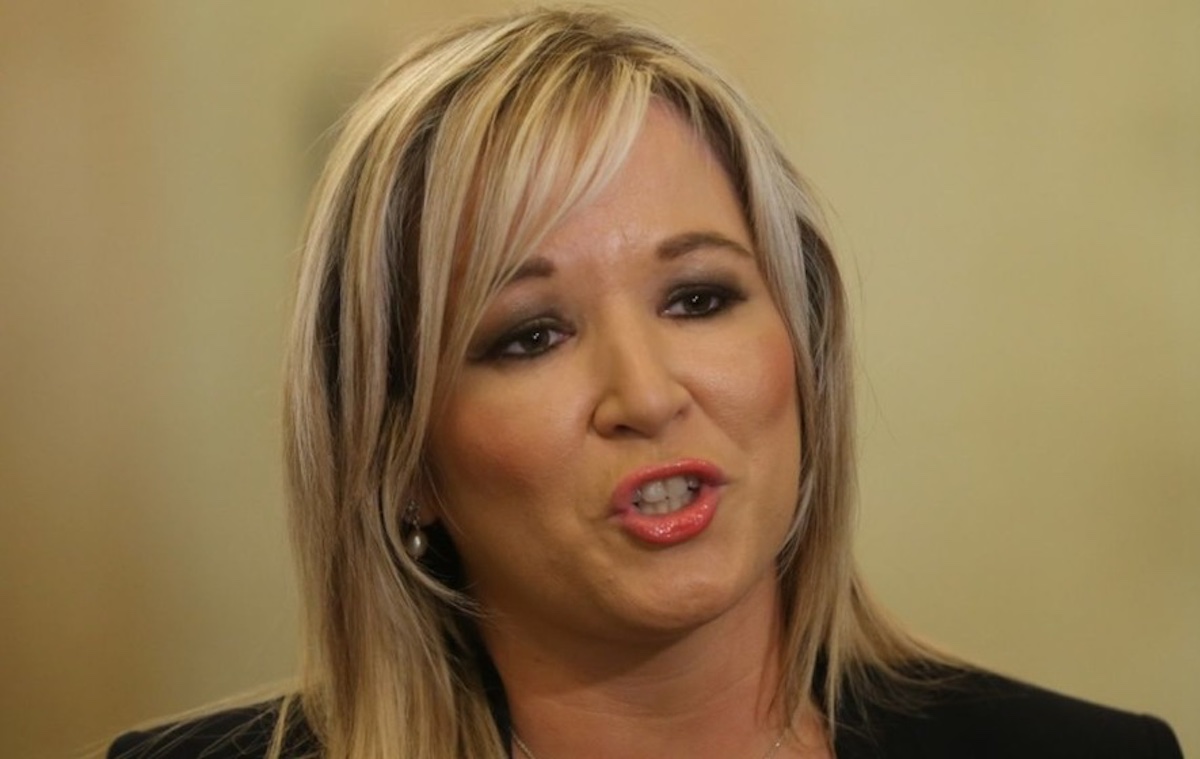
Sinn Féin’s Stormont leader Michelle O’Neill has called for “immediate action” from the London government to address the political deadlock in the Six Counties.
It was reported that Ms O’Neill wrote to British Direct Ruler Secretary Chris Heaton-Harris in recent days stating that the patience of the public had been tested “beyond all reasonable limits” by the ongoing impasse.
However, a British official responded that they would not give a running commentary on the negotiations and claimed Mr Heaton-Harris is doing “everything he can” to facilitate the restoration of the power-sharing institutions.
The power-sharing institutions at Stormont have been suspended for more than 18 months due to a protest by the DUP over post-Brexit trading arrangements.
The unionist party has been involved in negotiations with London about the Windsor Framework, which replaced the Brexit deal’s Northern Ireland Protocol, and is seeking further assurances, by way of legislation, over the North’s place in the union with Britain.
Mr Heaton-Harris has said that the negotiations are nearing a conclusion, stating last week that they were in the “final, final stages”.
In her letter, Ms O’Neill called for “immediate action to address the political stalemate”.
She said that despite elements of the Windsor Framework being operational since October, negotiations between London and the DUP “have not delivered a successful outcome to date”.
Ms O’Neill said this was despite repeated assurances from both the Heaton-Harris and DUP leader Sir Jeffrey Donaldson that they are almost at a close.
She said “ample space and time” had been afforded for all parties involved to engage constructively.
The Sinn Féin Stormont leader also emphasised the “urgency” on London to conclude these negotiations”, stating that the “patience of the public and all those concerned has been tested beyond reasonable limits”.
Ms O’Neill urged Heaton-Harris to respond swiftly to her to “address the gravity of the situation”.
It comes as a Westminster committee made a number of proposed changes to the Good Friday Agreement aimed at stabilising Stormont. The measures provide assurances to the DUP in the wake of it being displaced by Sinn Féin as the largest party in the Stormont Assembly at the last election, and Ms O’Neill returned as First Minister-elect.
These include the requirement of a 66% ‘supermajority’ for certain votes and the replacement of the titles of First Minister and Deputy First Minister with ‘Joint First Minister’.
Despite this, DUP MP Carla Lockhart, who sits on the ‘Northern Ireland Affairs Committee’ with party colleague Jim Shannon, said the pair had “grave concerns” about the MPs’ proposals.
Despite the DUP vetoing the North’s Executive for almost two years, they ironically called for “consensus politics”.
“We want to get back to consensus politics and we don’t believe that any sweeping new ways of working should be introduced to Northern Ireland and the assembly at this time,” they said.
Responding to the report’s recommendations, a Sinn Féin spokesperson said 25 years on from the Good Friday Agreement it was “imperative to learn lessons around what has worked, but also what hasn’t”.
“Respecting the results of last May’s election, reinstating power-sharing, and having parties assess, review and scrutinise the operation of both the assembly and executive through an all-party committee are pragmatic steps forward,” the spokesperson said.
![[Irish Republican News]](https://republican-news.org/graphics/title_gifs/rn.gif)
![[Irish Republican News]](https://republican-news.org/graphics/title_gifs/harp.gif)

